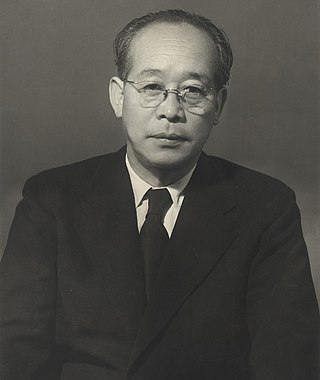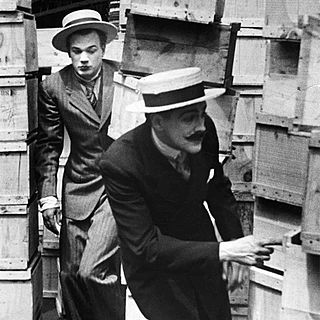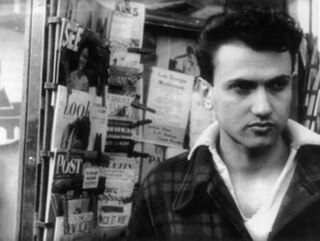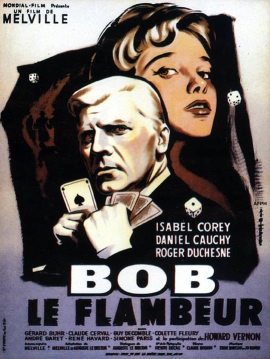
Citizen Kane is a 1941 American drama film directed by, produced by, and starring Orson Welles. Welles and Herman J. Mankiewicz wrote the screenplay. The picture was Welles' first feature film. Citizen Kane is frequently cited as the greatest film ever made. For 50 consecutive years, it stood at number 1 in the British Film Institute's Sight & Sound decennial poll of critics, and it topped the American Film Institute's 100 Years ... 100 Movies list in 1998, as well as its 2007 update. The film was nominated for Academy Awards in nine categories and it won for Best Writing by Mankiewicz and Welles. Citizen Kane is praised for Gregg Toland's cinematography, Robert Wise's editing, Bernard Herrmann's music, and its narrative structure, all of which have been considered innovative and precedent-setting.

George Orson Welles was an American actor and filmmaker who is remembered for his innovative work in film, radio, and theatre. He is considered to be among the greatest and most influential filmmakers of all time.

Kenji Mizoguchi was a Japanese filmmaker who directed roughly one hundred films during his career between 1923 and 1956. His most acclaimed works include The Story of the Last Chrysanthemums (1939), The Life of Oharu (1952), Ugetsu (1953), and Sansho the Bailiff (1954), with the latter three all being awarded at the Venice International Film Festival. A recurring theme of his films was the oppression of women in historical and contemporary Japan. Together with Akira Kurosawa and Yasujirō Ozu, Mizoguchi is seen as a representative of the "golden age" of Japanese cinema.
In filmmaking, a long take is shot with a duration much longer than the conventional editing pace either of the film itself or of films in general. Significant camera movement and elaborate blocking are often elements in long takes, but not necessarily so. The term "long take" should not be confused with the term "long shot", which refers to the distance between the camera and its subject and not to the temporal length of the shot itself. The length of a long take was originally limited to how much film the magazine of a motion picture camera could hold, but the advent of digital video has considerably lengthened the maximum potential length of a take.

Too Much Johnson is a 1938 American silent comedy film written and directed by Orson Welles. An unfinished film component of a stage production, it was made three years before Welles directed Citizen Kane, but it was never publicly screened. It was shot to be integrated into Welles's Mercury Theatre stage presentation of William Gillette's 1894 comedy, but the film sequences could not be shown due to the absence of projection facilities at the venue, the Stony Creek Theatre in Connecticut. The resulting plot confusion reportedly contributed to the stage production's failure.

Isidore Isou, born Isidor Goldstein, was a Romanian-born French poet, dramaturge, novelist, film director, economist, and visual artist. He was the founder of Lettrism, an art and literary movement which owed inspiration to Dada and Surrealism.

Bob le flambeur is a 1956 French heist gangster film directed by Jean-Pierre Melville and starring Roger Duchesne as Bob. It is often considered both a film noir and a precursor to the French New Wave, the latter because of its use of handheld camera and a single jump cut.

Joseph McBride is an American film historian, biographer, screenwriter, author and educator. He has written books on a variety of subjects including notable film directors, screenwriting, the JFK assassination, and a memoir of his youth.
Charles Eldridge O'Neal was an American film and television screenwriter and novelist.

The Other Side of the Wind is a 2018 satirical drama film, directed, co-written, co-produced and co-edited by Orson Welles, and posthumously released in 2018 after 48 years in development. The film stars John Huston, Bob Random, Peter Bogdanovich, Susan Strasberg, and Oja Kodar.
Su Friedrich is an American avant-garde film director, producer, writer, and cinematographer. She has been a leading figure in avant-garde filmmaking and a pivotal force in the establishment of Queer Cinema.

Orson Welles (1915–1985) was an American director, actor, writer, and producer who is best remembered for his innovative work in radio, theatre and film. He is widely considered one of the greatest and most influential filmmakers of all time.

Filming Othello is a 1978 documentary film directed by and starring Orson Welles about the making of his award-winning 1951 production Othello. The film, which was produced for West German television, was the last completed feature film directed by Welles.
Don Quixote is an unfinished film project written, co-produced and directed by Orson Welles. Principal photography took place between 1957 and 1969. Test footage was filmed as early as 1955, second-unit photography was done as late as 1972, and Welles was working on the film intermittently until his death in 1985. The film was eventually edited by Jesús Franco and was released in 1992, to mixed reviews.
Lewis Jacobs was an American screenwriter, film director and critic. He authored several books, including The Rise of the American Film.
This is a bibliography of books by or about the director and actor Orson Welles.

The Citizen Kane trailer is a four-minute, self-contained, "making of" promotional short film by Orson Welles and the Mercury Theatre, released in 1940 to promote the film Citizen Kane. Unlike other standard theatrical trailers of the era, it did not feature any footage of the actual film itself, but was a wholly original pseudo-documentary piece. It is considered by numerous film scholars such as Simon Callow, Joseph McBride and Jonathan Rosenbaum to be a standalone short film, rather than a conventional "trailer", and to represent an important stage in developing Welles's directorial style.

It's All True: Based on an Unfinished Film by Orson Welles is a 1993 documentary film about Orson Welles's ill-fated Pan-American anthology film It's All True, shot in 1941–42 but never completed. Written and directed by Richard Wilson, Bill Krohn and Myron Meisel, the film is narrated by Miguel Ferrer. It was named the year's Best Non-Fiction Film by the Los Angeles Film Critics Association, and its filmmakers received a special citation from the National Society of Film Critics.











